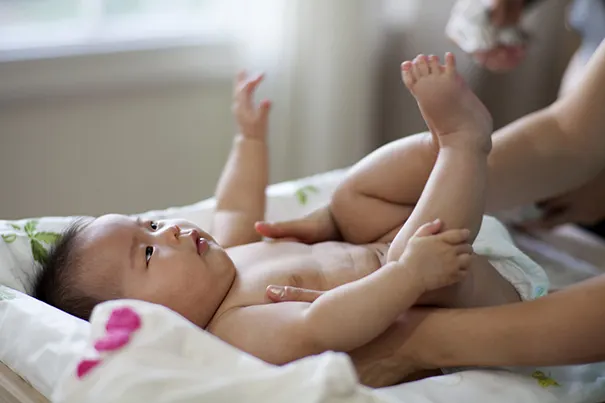Your baby's skin: Nappy Rash Treatment
One of the first things you will notice is how soft your baby's skin is. It needs to be cared for and protected.
This delicate skin has some tough jobs: it lets her sense and learn about the world around her, lets you communicate with her through touch and also protects her from the environment. That's why it's important to keep your baby's skin protected and healthy.
It's helpful to know that nappy rash is common, more than half of babies between the ages of 4 and 15 months will develop nappy rash at least once in a two-month period. But don't worry, most common and mild cases will heal within 3-4 days with extra care.
Prevention first
Frequently changing the baby nappies can help avoid diaper rash in babies. Diaper rash can be prevented with simple home treatments such as more frequent diaper changes and applying ointment to baby’s skin.
Always look out for a wetness indicator in the nappies which indicates that the nappy needs to be changed. Pampers Premium Care Newborn diapers come with the feature of wetness indicator and lotion with aloe vera to protect baby’s delicate skin. It is super soft and helps keep your baby’s skin protected and moisturized.
Treating your baby's nappy rash:
Change wet or soiled nappies frequently to decrease moisture on the skin.
Gently clean the nappy area with water and a soft flannel, or use gentle nappy wipes like Pampers Sensitive Wipes.
Pat dry baby's skin. Do not rub. Allow the area to air dry fully.
Protect the skin:
Gently apply a thin layer of protective ointment or cream with zinc oxide and/or petroleum.
Keep your skin dry with a soft, absorbent, high-quality nappy that locks wetness away.
Make sure that nappies aren't too tight so wetness stays away from the skin.
Talk to your doctor if:
A rash is severe; when it's raw, blistering or bleeding.
The rash looks unusual.
The rash doesn't get better even with extra care.
To learn more about nappy rash symptoms and its preventions, Choose from our best range of diapers and nappies to avoid nappy rash.

